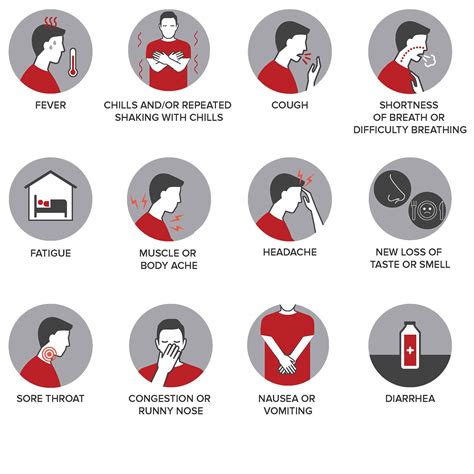
A growing number of COVID-19 patients are reporting a disturbing symptom: persistent and debilitating tinnitus, or ringing in the ears, prompting experts to warn of the virus’s potential to trigger or exacerbate auditory issues. Health professionals are now urging individuals to take preventive measures, including vaccination and prompt medical consultation, to mitigate the risk and manage the condition.
The resurgence of COVID-19 infections has brought with it a worrying trend – an increasing number of individuals experiencing tinnitus, a condition characterized by a perceived ringing, buzzing, or hissing sound in one or both ears. While tinnitus is not a new phenomenon, its association with COVID-19 is raising concerns among audiologists and infectious disease specialists. The exact mechanisms by which the virus might induce tinnitus are still under investigation, but emerging evidence suggests that SARS-CoV-2 can directly or indirectly impact the auditory system.
“We are seeing more and more patients reporting tinnitus following a COVID-19 infection,” says Dr. Laura Wineland, AuD, an audiologist at the University of Tennessee Health Science Center, in Memphis. “For some, it’s a temporary annoyance, but for others, it’s significantly affecting their quality of life.” This observation is echoed by other healthcare professionals across the country, indicating a potentially widespread issue that warrants greater attention.
The Potential Mechanisms Linking COVID-19 and Tinnitus
Several hypotheses are being explored to explain the link between COVID-19 and tinnitus. One possibility is that the virus directly infects the cells within the inner ear, causing inflammation and damage to the delicate structures responsible for hearing. SARS-CoV-2 has been shown to invade various tissues throughout the body, and the inner ear may not be exempt. This direct viral invasion could disrupt the normal functioning of the auditory system, leading to tinnitus and other hearing-related problems.
Another potential mechanism involves the body’s immune response to the virus. When the immune system detects SARS-CoV-2, it mounts a vigorous defense, releasing inflammatory molecules to combat the infection. However, this inflammatory response can sometimes be overzealous, causing collateral damage to healthy tissues, including those in the inner ear. This inflammation-induced damage could disrupt the neural pathways involved in hearing, resulting in tinnitus.
Furthermore, COVID-19 can cause blood clots and vascular issues, which may also contribute to tinnitus. The inner ear relies on a constant supply of blood to function properly, and any disruption to this blood flow can impair its performance. Blood clots or other vascular problems could compromise the blood supply to the inner ear, leading to ischemia (lack of oxygen) and subsequent damage, potentially triggering tinnitus.
Stress and anxiety, which are often heightened during a pandemic, can also exacerbate tinnitus. Psychological factors have long been recognized as playing a role in the perception and severity of tinnitus. The stress and uncertainty surrounding COVID-19, coupled with social isolation and economic anxieties, could amplify existing tinnitus or even trigger new cases in susceptible individuals.
Understanding the Severity and Duration of COVID-Related Tinnitus
The severity and duration of tinnitus following a COVID-19 infection can vary widely. Some individuals experience a mild, temporary ringing in the ears that resolves within a few days or weeks. Others, however, suffer from chronic, debilitating tinnitus that persists for months or even years, significantly impacting their daily lives.
“For some patients, the tinnitus is just a minor inconvenience, something they can easily ignore,” explains Dr. Wineland. “But for others, it’s a constant source of distress, making it difficult to concentrate, sleep, or even carry on a conversation.” The impact of tinnitus on quality of life can be substantial, leading to anxiety, depression, and social isolation.
The factors that determine the severity and duration of COVID-related tinnitus are not yet fully understood. However, it is likely that individual susceptibility, pre-existing hearing conditions, and the severity of the COVID-19 infection all play a role. Individuals with pre-existing hearing loss or tinnitus may be more vulnerable to experiencing a worsening of their symptoms following a COVID-19 infection.
Preventive Measures and Management Strategies
Given the potential for COVID-19 to trigger or exacerbate tinnitus, experts are emphasizing the importance of preventive measures. Vaccination remains the most effective way to protect against severe COVID-19 infection and reduce the risk of associated complications, including auditory issues.
“Getting vaccinated is the best way to protect yourself from COVID-19 and its potential long-term effects,” advises Dr. Anthony Fauci, Director of the National Institute of Allergy and Infectious Diseases. “Vaccines have been shown to be safe and effective in preventing severe illness, hospitalization, and death.”
In addition to vaccination, practicing good hygiene, wearing masks, and maintaining social distancing can help reduce the risk of contracting COVID-19 in the first place. These simple precautions can go a long way in protecting not only your respiratory health but also your auditory health.
For individuals who develop tinnitus following a COVID-19 infection, prompt medical attention is crucial. An audiologist can perform a comprehensive hearing evaluation to assess the nature and extent of the problem. Based on the findings, the audiologist can recommend appropriate management strategies to help alleviate the symptoms and improve quality of life.
Management strategies for tinnitus may include:
- Hearing aids: For individuals with hearing loss, hearing aids can amplify external sounds, making the tinnitus less noticeable.
- Tinnitus retraining therapy (TRT): TRT is a type of sound therapy that aims to habituate the individual to the tinnitus, reducing its perceived loudness and annoyance.
- Cognitive behavioral therapy (CBT): CBT is a type of psychotherapy that helps individuals develop coping strategies to manage the emotional distress associated with tinnitus.
- Sound masking: Sound masking involves using external sounds, such as white noise or nature sounds, to cover up the tinnitus.
- Medications: In some cases, medications, such as antidepressants or anti-anxiety drugs, may be prescribed to help manage the symptoms of tinnitus.
It is important to note that there is no one-size-fits-all treatment for tinnitus. The most effective management strategy will depend on the individual’s specific circumstances and the nature of their tinnitus. A multidisciplinary approach, involving audiologists, physicians, and mental health professionals, may be necessary to achieve optimal outcomes.
The Long-Term Implications and Future Research
The long-term implications of COVID-related tinnitus are still unknown. While some individuals experience a resolution of their symptoms over time, others may continue to suffer from chronic tinnitus for years to come. Further research is needed to better understand the natural history of COVID-related tinnitus and to identify factors that predict long-term outcomes.
In addition, more research is needed to elucidate the precise mechanisms by which COVID-19 affects the auditory system. Understanding these mechanisms will be crucial for developing targeted therapies to prevent and treat COVID-related tinnitus. Studies are currently underway to investigate the impact of SARS-CoV-2 on the inner ear and to identify potential drug targets for intervention.
The emergence of tinnitus as a potential complication of COVID-19 underscores the importance of ongoing research and surveillance. As the pandemic continues to evolve, it is crucial to monitor the long-term effects of the virus on various organ systems, including the auditory system. By increasing our understanding of COVID-related tinnitus, we can develop better strategies to prevent, diagnose, and manage this distressing condition.
The symptoms of tinnitus are subjective, meaning they are experienced differently by each person. However, some common signs include:
- Ringing in the ears
- Buzzing in the ears
- Hissing in the ears
- Clicking in the ears
- Roaring in the ears
- Pulsating sound in the ears
- Hearing sounds that aren’t actually there
These sounds may be constant or intermittent, and they may vary in loudness and pitch. Tinnitus can be present in one or both ears. If you experience any of these symptoms, it is important to seek medical attention.
The Role of Vaccination in Protecting Against Auditory Complications
The Centers for Disease Control and Prevention (CDC) and other leading health organizations continue to recommend vaccination as the primary means of protection against COVID-19. Studies have consistently demonstrated that vaccines are highly effective in preventing severe illness, hospitalization, and death from COVID-19.
Emerging evidence also suggests that vaccination may offer some protection against auditory complications, including tinnitus. While more research is needed to confirm this, it is plausible that vaccination could reduce the risk of COVID-related tinnitus by preventing severe infection and minimizing the inflammatory response in the body.
“Vaccination is not only about protecting yourself but also about protecting others,” emphasizes Dr. Rochelle Walensky, Director of the CDC. “By getting vaccinated, you are helping to reduce the spread of the virus and protect vulnerable members of our community.”
In addition to vaccination, booster doses are recommended to maintain a high level of protection against COVID-19, especially as new variants emerge. Booster doses can help to boost the immune response and provide additional protection against infection and severe illness.
Living with Tinnitus: Coping Strategies and Support Resources
For individuals who are living with chronic tinnitus, it is important to develop coping strategies to manage the symptoms and improve quality of life. There are a number of resources available to help individuals cope with tinnitus, including:
- Audiologists: Audiologists can provide comprehensive hearing evaluations and recommend appropriate management strategies for tinnitus.
- Support groups: Support groups provide a safe and supportive environment for individuals with tinnitus to share their experiences and learn from others.
- Online forums: Online forums offer a convenient way for individuals with tinnitus to connect with others and access information and resources.
- Mental health professionals: Mental health professionals can provide counseling and therapy to help individuals manage the emotional distress associated with tinnitus.
Lifestyle modifications can also play a role in managing tinnitus. These may include:
- Avoiding loud noises: Exposure to loud noises can worsen tinnitus, so it is important to protect your hearing by wearing earplugs or earmuffs in noisy environments.
- Reducing stress: Stress can exacerbate tinnitus, so it is important to find ways to relax and manage stress, such as through exercise, yoga, or meditation.
- Limiting caffeine and alcohol: Caffeine and alcohol can stimulate the nervous system and worsen tinnitus in some individuals.
- Getting enough sleep: Lack of sleep can worsen tinnitus, so it is important to get adequate rest.
- Maintaining a healthy diet: A healthy diet can help to improve overall health and well-being, which may indirectly help to manage tinnitus.
The Importance of Raising Awareness
Raising awareness about the potential link between COVID-19 and tinnitus is crucial for promoting early detection and intervention. By educating the public about this potential complication, we can encourage individuals to seek medical attention promptly if they develop tinnitus following a COVID-19 infection.
Healthcare professionals also need to be aware of the potential for COVID-19 to trigger or exacerbate tinnitus. This will enable them to provide appropriate counseling and management strategies to their patients.
The COVID-19 pandemic has had a profound impact on global health, and its long-term consequences are still being uncovered. The emergence of tinnitus as a potential complication underscores the complexity of the virus and the importance of continued research and vigilance. By working together, we can better understand and address the challenges posed by COVID-19 and protect the health and well-being of our communities.
Frequently Asked Questions (FAQ) about COVID-19 and Tinnitus
Q1: Can COVID-19 cause tinnitus?
Yes, emerging evidence suggests that COVID-19 can trigger or worsen tinnitus in some individuals. While the exact mechanisms are still under investigation, potential causes include direct viral infection of the inner ear, inflammation induced by the immune response, and vascular issues affecting blood flow to the ear.
Q2: How common is tinnitus after a COVID-19 infection?
The exact prevalence is still being studied, but healthcare professionals are reporting an increase in tinnitus cases following COVID-19 infections. The severity and duration can vary, with some experiencing temporary tinnitus and others developing chronic, debilitating tinnitus.
Q3: What should I do if I develop tinnitus after having COVID-19?
Consult with a healthcare professional, preferably an audiologist. They can perform a hearing evaluation to assess the cause and severity of your tinnitus and recommend appropriate management strategies. Early intervention is key to managing the condition effectively.
Q4: Is there a cure for tinnitus caused by COVID-19?
There is no definitive cure for tinnitus, but various management strategies can help alleviate the symptoms and improve quality of life. These include hearing aids, tinnitus retraining therapy (TRT), cognitive behavioral therapy (CBT), sound masking, and, in some cases, medication.
Q5: Does vaccination against COVID-19 help prevent tinnitus?
While more research is needed, vaccination is highly recommended to prevent severe COVID-19 infection and reduce the risk of associated complications, including auditory issues like tinnitus. Vaccination can minimize the inflammatory response and other factors that may contribute to tinnitus development.









